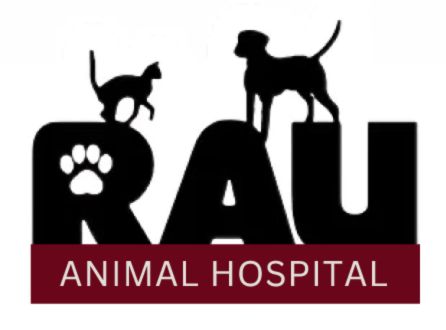
What is Veterinary Diagnostic Imaging?
Veterinary diagnostic imaging includes radiographs (x-rays), ultrasound, MRIs, and CT scans, all of which are used as diagnostic tools to collect information on your dog's health. The vast majority of imaging is non-invasive and completely painless. However, some imaging may require sedation or even anesthesia because the dog must be kept still to allow for adequate images to be produced. Veterinarians use these images to collect information on your dog to help them to make a medical and sometimes surgical plan.
*Note: Rau Animal Hospital currently does not perform MRIs or CT Scans
When Is Veterinary Diagnostic Imaging Necessary?
After our veterinarian has examined your dog, he or she may want to begin to collect more information that will lead to a diagnosis and then, a treatment plan. X-rays are usually the first line of imaging. The x-ray may lead to a diagnosis which allows them to move forward with a plan. However, sometimes the next step may be ultrasound to get a more thorough or specific look at a particular area of the body.
The four types of Veterinary Diagnostic Imaging our veterinarians may utilize to assist in the diagnosis of your dog's condition are:
- X-Rays
- MRIs*
- Ultrasounds
- CT Scans*
More information on each of these types of radiographs we provide below.
*Note: Rau Animal Hospital currently does not perform MRIs or CT Scans
X-Rays
X-rays have been in use throughout the medical community for many decades. X-rays are by far the most regularly used form of diagnostic imaging in the veterinary industry because they are cost-effective (comparatively speaking), and they can accurately diagnose the state of skeletal structure and composition, large body cavities, and the presence of many foreign objects. X-rays are totally painless, but some dogs can benefit from sedation to reduce anxiety and stress. Our x-ray images are now digital which allows us to capture the images on a secure server that our veterinarians can access at any time, and can also share with specialists, if necessary.
Ultrasounds
A dog ultrasound is the second most common type of diagnostic imaging tool veterinarians use to diagnose a dog's medical condition. Ultrasounds use soundwaves to examine and photograph internal tissues in real-time. An ultrasound allows our veterinarians to see into a dog's body in real-time, allowing for easy viewing of organs from different angles that are not easily achieved through X-rays. The functioning of various organs and blood flow can be observed to determine if they are malfunctioning.
Common symptoms that may cause a veterinarian to use ultrasound include vomiting, weight loss, kidney impairment or blockage, and heart disease.
How Canine Radiographs Influence Veterinary Recommendations
The goal of canine radiographs is to ascertain a diagnosis, or obtain a final answer without having to perform further, more invasive tests or procedures. For example, an x-ray might show some soft tissue swelling in the knee but the addition of an MRI would reveal the specific tendon or ligament tear that is causing a dog to limp and allow for a more specific treatment plan, diagnosis, and prognosis.
Veterinary diagnostic imaging offers an array of incredibly useful tools within a veterinarian's toolkit. Sometimes a diagnostic imaging session can lead to the need for further diagnostics. This is why it is important to understand that diagnostic imaging may lead to a progressive fact-finding mission that must occur in order to diagnose your dog's ailment.
If you are concerned that your dog might be injured or experiencing internal problems, or to discuss how canine radiographs can benefit him or her, please contact us to schedule an appointment with one of our veterinarians today.
*Note: Rau Animal Hospital currently does not perform MRIs or CT Scans
